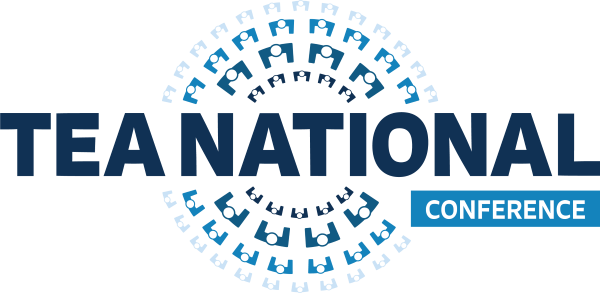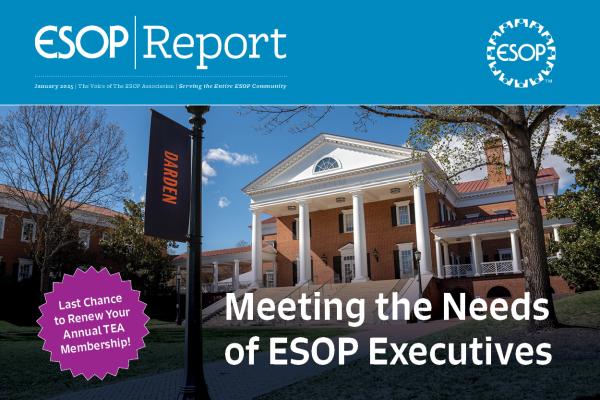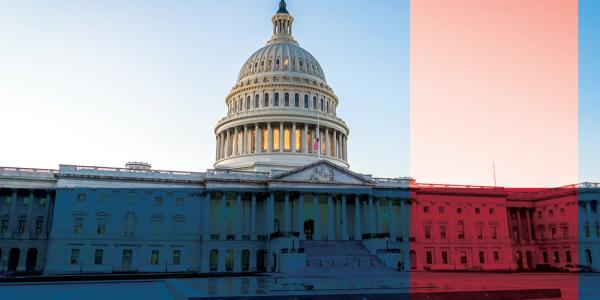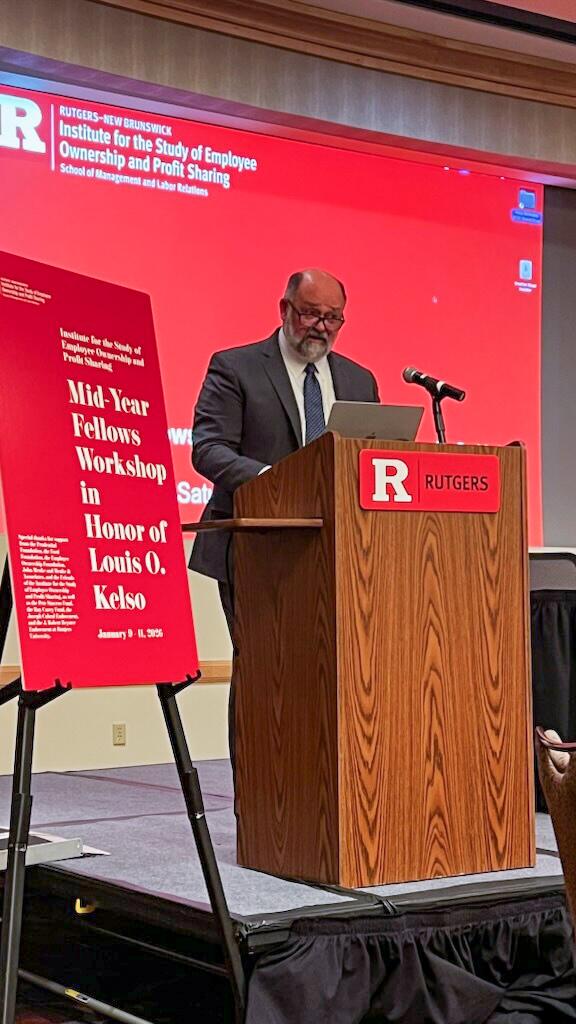DOL Commits to Provide Long-Sought Regulatory Clarity with Stakeholder Input on the Valuation of Company Shares to be Bought by an ESOP
Washington, D.C., April 14, 2023 – In a major victory for Employee Stock Ownership Plans (ESOPs), the U.S. Department of Labor has committed to move forward with a public notice and comment rulemaking on a key regulation the community has sought since ESOPs were first created in 1974. The regulation will clearly define Adequate Consideration under Section 408(e) of the Employee Retirement Income Security Act of 1974 (ERISA).
The decision was communicated to The ESOP Association (TEA) by Assistant Secretary of Labor Lisa Gomez in a letter dated April 12, 2023, that was issued in response to a formal Administrative Procedure Act (APA) petition initiated by the Association last September.
“This has been a long time coming – unnecessarily long. While we are far from a proposed regulation, let alone a final regulation, I am hopeful the Department will live up to its commitment in a timely way,” said James Bonham, President and CEO of The ESOP Association. “We look forward to working with the Department to ensure ESOP Trustees have the regulatory clarity they have desperately needed, and employee owners of ESOPs can be confident they have not overpaid for the companies their ESOP is buying on their behalf.”
TEA has been aggressive in seeking the formal rulemaking throughout its history, but especially over the last four years. In addition to exercising its rights under the APA, the Association also championed legislative language within the SECURE 2.0 Act directing the DOL to accomplish the rulemaking. That legislation was signed into law December 29, 2022 by President Biden and was cited by Gomez as a reason the Department would be moving forward “relatively soon”.
While formally declining the APA petition which was brought under ERISA, Gomez cited the requirements placed on the Department in the SECURE 2.0 Act as the reason it was moving forward at this time. “To be clear, however, the Department has decided to move forward with notice and comment rulemaking on the “adequate consideration” requirement in connection with ESOP acquisitions of qualifying employer securities and looks forward to hearing from you and a wide range of stakeholders on the relevant issues.” (Emphasis added.)
Gomez continued, “The Department expects to move forward and engage with interested stakeholders, including TEA, relatively soon as the first step of the rulemaking process. The specific timing of next steps in the process will depend on the breadth and depth of public input from those public engagement sessions with interested stakeholders. We look forward to additional input from TEA as we move forward with this process.”
Bonham emphasized that the Association expects DOL to move forward without delay and observed that the formal denial of the Association’s petition created a legal cause of action under the Administrative Procedure Act.
“The reason we had to file the petition was because the Department has refused to issue the regulatory guidance as required by ERISA for almost 50 years,” Bonham said. “It is not lost on us that the DOL has said many times before that it will do what it is promising to do now. There is not much trust between ESOPs and the DOL, so we hope this isn’t a case of ‘fool me twice’. This rulemaking should begin with all haste. Our membership will measure that in weeks and months, not years.”
More detailed information about adequate consideration can be found here. The ESOP Association’s original petition to the DOL via the APA can be found here. For a Fact Sheet on the petition and related issues, click here. For more information on the Administrative Procedure Act, click here.









